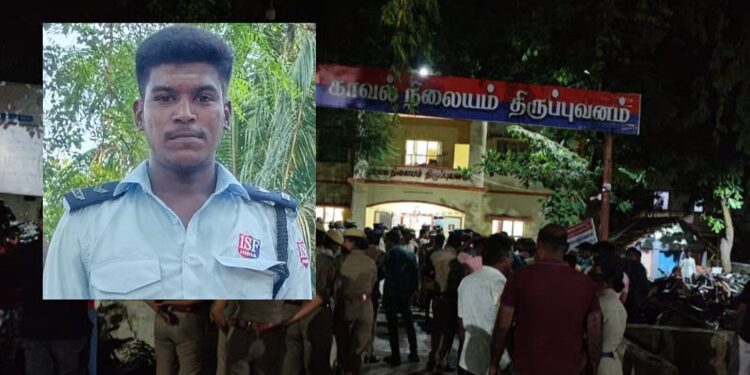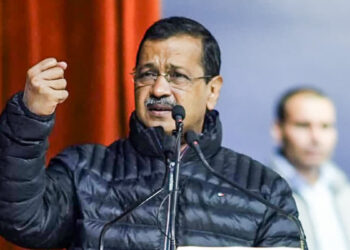Tamil Nadu, India – A 27-year-old temple security guard, Ajith Kumar, died in police custody in Sivaganga district, Tamil Nadu, triggering widespread protests and demands for justice. A postmortem report revealed approximately 50 external injuries on his body, pointing to a brutal and systematic assault, according to sources familiar with the investigation.
Ajith Kumar, employed at the Madapuram Badrakali Amman Temple, was detained on June 27, 2025, for questioning in connection with a gold jewelry theft reported by a temple visitor. Authorities claim Kumar was taken to various locations for interrogation, but no formal charges were filed against him. A video, allegedly showing police officers beating Kumar with sticks, surfaced online, intensifying public anger. The footage, recorded by a temple worker, has been widely shared, raising questions about police conduct.
The postmortem report, conducted at Madurai Government Rajaji Hospital, detailed severe injuries, including wounds to Kumar’s head, chest, limbs, and back, along with evidence of torture such as cigarette burns and chili powder applied to sensitive areas. The Madras High Court, responding to the case, described the injuries as so severe that “even an ordinary murderer would not have caused this much harm.” The court has ordered a judicial inquiry and transferred the investigation to India’s Central Bureau of Investigation (CBI) for transparency.
Five police officers have been arrested and charged with custodial death, while six others have been suspended. Tamil Nadu Chief Minister M.K. Stalin apologized to Kumar’s family and announced compensation, including a government job for Kumar’s brother and financial aid. However, critics, including opposition leaders and activists, argue that these measures do not address the broader issue of police brutality in the state.
The case has fueled public outrage, with protests erupting across Tamil Nadu. Political leaders, including actor-turned-politician Vijay, have called for systemic reforms to prevent custodial deaths. “This is not just about one incident,” said a local activist. “It’s about a pattern of police violence that needs to stop.”
International human rights groups have also taken notice, urging Indian authorities to ensure accountability and protect detainees’ rights. The incident has reignited debates about police reform and the need for stricter oversight in India’s law enforcement system.
As the CBI takes over the investigation, Kumar’s family and supporters demand justice, hoping his death will lead to meaningful change. The case remains under close scrutiny, with many calling for answers to unresolved questions about the circumstances of his detention and death.





































